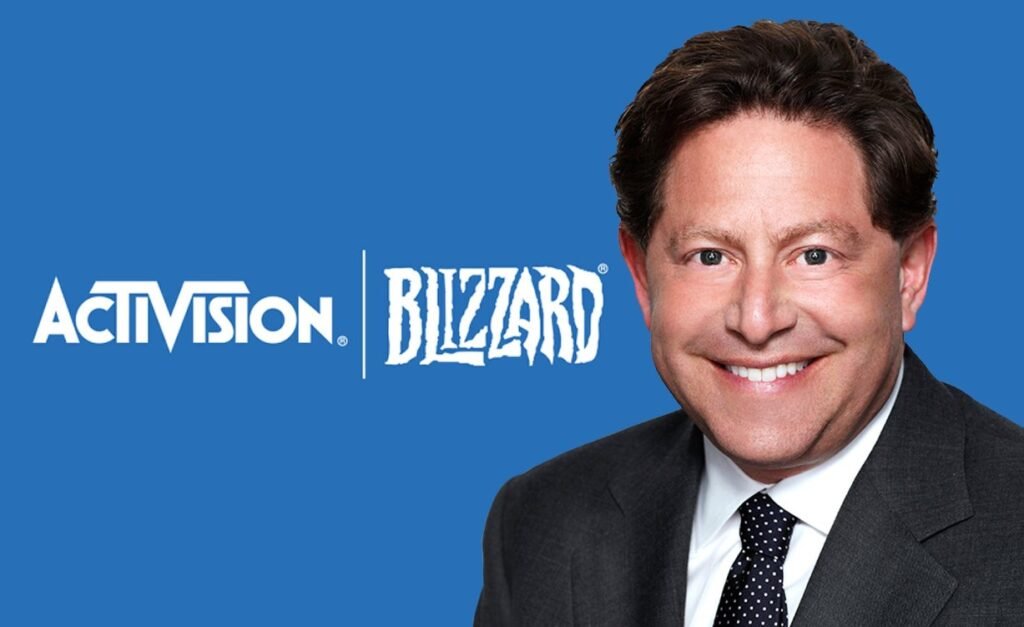Activision Blizzard CEO Bobby Kotick has announced that he will remain in his position until the end of 2023, after Microsoft agreed to acquire the gaming giant for $68.7 billion. The deal, which is expected to close by June 2023, is the largest in the history of the gaming industry and will make Microsoft the owner of some of the most popular franchises, such as Call of Duty, World of Warcraft, Candy Crush, and Overwatch.
Kotick has been the CEO of Activision Blizzard since 1991 and has overseen the growth and success of the company, which reported $8.5 billion in revenue and $2.2 billion in net income in 2022. However, he has also faced criticism and backlash from employees, shareholders, regulators, and gamers for his handling of the company’s culture and practices.

In July 2021, the California Department of Fair Employment and Housing (DFEH) filed a lawsuit against Activision Blizzard, alleging that the company fostered a “frat boy” culture that discriminated against and harassed female employees. The lawsuit also claimed that Kotick and other executives knew of the misconduct and failed to take appropriate action. The lawsuit sparked a wave of protests, petitions, and resignations from employees and fans, as well as investigations from the Equal Employment Opportunity Commission (EEOC), the Securities and Exchange Commission (SEC), and other agencies.
In November 2021, the Wall Street Journal published a report that revealed that Kotick had been aware of several cases of sexual harassment and assault at the company for years, but did not inform the board of directors or take adequate measures to address them. The report also alleged that Kotick had threatened to kill a female employee in a voicemail in 2006 and had intervened to keep a senior executive who had been accused of harassment. The report prompted more calls for Kotick’s resignation from employees, investors, and lawmakers, as well as a drop in the company’s stock price.
Microsoft’s acquisition and integration plans
On January 18, 2023, Microsoft announced that it had reached an agreement to buy Activision Blizzard for $68.7 billion in cash, or $95 per share, a 45% premium over the closing price on January 17. The deal, which is subject to regulatory approval and customary closing conditions, is expected to be completed by June 2023. Microsoft said that the acquisition would enhance its gaming portfolio and reach, as well as its cloud, subscription, and advertising capabilities.
Microsoft also said that it would honor Activision Blizzard’s existing contractual obligations and partnerships, and that it would support the company’s efforts to improve its culture and address the legal issues. Microsoft CEO Satya Nadella said that he was “incredibly excited” to welcome Activision Blizzard to the Microsoft family and that he had “tremendous respect” for Kotick and his team.
Kotick said that he was “fully committed” to helping with the transition and that he had agreed to stay on as CEO of Activision Blizzard, reporting to Phil Spencer, the CEO of Microsoft Gaming, until the end of 2023. He said that he and Spencer looked forward to working together on a “smooth integration” for the teams and players. However, neither Kotick nor Spencer made it clear what would happen to Kotick’s role after 2023, leaving the possibility of his departure open.
The impact and implications of the deal
The deal between Microsoft and Activision Blizzard is the largest in the gaming industry, surpassing the previous record of $40 billion that Microsoft paid for ZeniMax Media, the parent company of Bethesda, in 2020. The deal will make Microsoft the owner of some of the most popular and profitable gaming franchises in the world, with more than 400 million monthly active players across console, PC, and mobile platforms. The deal will also give Microsoft access to Activision Blizzard’s intellectual property, talent, technology, and data.
The deal will also have significant implications for the gaming landscape and the competition among the major players, such as Sony, Nintendo, Amazon, Google, and Apple. The deal will strengthen Microsoft’s position in the console market, where it competes with Sony’s PlayStation and Nintendo’s Switch, as well as in the cloud gaming and subscription segments, where it offers its Xbox Game Pass and xCloud services. The deal will also increase Microsoft’s presence and influence in the mobile gaming market, where Activision Blizzard’s Candy Crush is one of the top-grossing games.
The deal will also raise questions and concerns about the consolidation and concentration of power in the gaming industry, as well as the regulatory and antitrust scrutiny that it will face. The deal will likely face challenges from regulators in the US, the EU, China, and other markets, who will examine its impact on competition, innovation, consumer choice, and privacy. The deal will also face opposition from some gamers and developers, who may fear that Microsoft will change or limit the availability and quality of Activision Blizzard’s games, or that it will impose its own policies and standards on the company.
